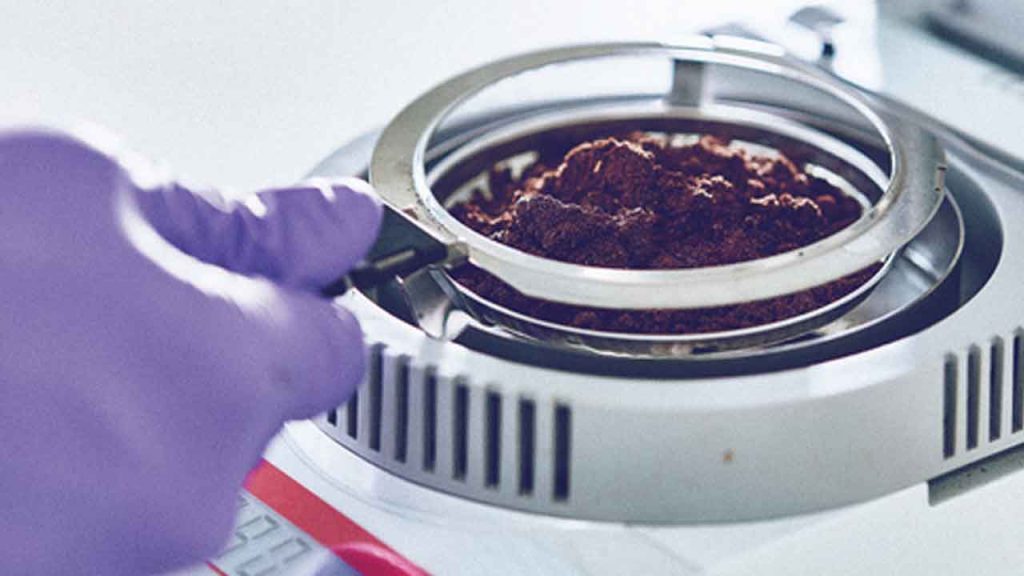Innovative research at Swinburne University in Australia has led to the creation of eco-friendly bricks made from recycled coffee grounds. This groundbreaking method not only addresses waste from the coffee industry but also aims to reduce construction emissions and costs. With a partnership established with local coffee shops, researchers are turning spent coffee grounds into sustainable building materials, marking a significant leap in green construction practices.
| Article Subheadings |
|---|
| 1) Bricks from recycled coffee grounds are cheaper and greener to make |
| 2) Why bricks from recycled coffee grounds are a smarter use of waste |
| 3) How bricks from recycled coffee grounds cut construction costs |
| 4) Bricks from recycled coffee grounds offer sustainable building solutions |
| 5) The impact of innovative building materials on future construction |
Bricks from recycled coffee grounds are cheaper and greener to make
Researchers at Swinburne University of Technology have ingeniously leveraged the surplus of coffee grounds discarded daily by local coffee shops, marking a significant milestone in sustainable building materials. The initiative involves collecting spent coffee grounds, which would typically be sent to landfills, and processing them with natural clay and an alkali activator. The resulting bricks demonstrate not only lower emissions but also offer a quicker and cost-efficient production method compared to traditional clay bricks. The blend of coffee waste significantly boosts sustainability by utilizing what would otherwise contribute to waste.
Why bricks from recycled coffee grounds are a smarter use of waste
Coffee consumption worldwide is staggering, with over two and a quarter billion cups enjoyed daily. The brewing process generates a substantial amount of waste, estimated to be over nine million tonnes of grounds annually. This not only contributes to landfill but also carries a significant carbon footprint due to the resources expended in disposal. By redirecting spent coffee grounds into the production of building materials, researchers are presenting a practical solution to waste management while simultaneously addressing the environmental impact of construction. This method represents a shift in how we view and utilize everyday waste products in a productive manner.
How bricks from recycled coffee grounds cut construction costs
One of the remarkable aspects of this new method is the substantial reduction in energy requirements for brick manufacturing. Traditional clay bricks necessitate high-temperature kilns operating at temperatures exceeding 900 degrees Celsius. In contrast, coffee-based bricks can be fired at only 200 degrees Celsius, providing an 80% reduction in energy usage. This efficiency in manufacturing not only contributes to lower costs but also lessens the carbon emissions associated with the production process. As highlighted by lead scientist Dr. Wong, the production of these innovative bricks is not just energy-efficient but also significantly reduces the potential carbon footprint per unit. The durability of these new bricks further enhances their appeal, demonstrating strength that exceeds Australian minimum standards.
Bricks from recycled coffee grounds offer sustainable building solutions
In June, Swinburne University finalized an intellectual property licensing deal with Green Brick, an Australian company focused on bringing these eco-friendly bricks to market. Green Brick’s founder, Philip Ng, emphasizes a transformation in material evaluation criteria, noting that future assessments will focus on sustainability metrics such as carbon emissions and circular economy principles instead of just cost per square meter. The innovative approach aims to promote the use of recycled organic materials in the construction industry, aligning with global sustainability goals. Such developments indicate a broader movement towards integrating sustainable practices in building methods, not just locally but on a global scale.
The impact of innovative building materials on future construction
The transition towards sustainable building materials extends globally, with innovations like “sugarcrete,” a bio-brick made from sugarcane waste, emerging in various regions. As this movement gathers momentum, the construction industry’s reliance on traditional materials is being challenged. The potential for these alternative solutions to minimize environmental degradation while fulfilling construction demands highlights the importance of research and development in this field. The success of coffee-based bricks may pave the way for further advancements in sustainable materials, encouraging other industries to harness waste in innovative ways.
| No. | Key Points |
|---|---|
| 1 | Innovative bricks made from recycled coffee grounds are developed at Swinburne University. |
| 2 | The production method significantly cuts down on emissions and manufacturing costs. |
| 3 | Using coffee waste contributes to reducing landfill load and promotes sustainability. |
| 4 | The bricks require less energy to produce compared to traditional clay bricks. |
| 5 | The initiative aligns with global trends toward sustainable building practices. |
Summary
The advancement of bricks made from recycled coffee grounds reflects an innovative approach to addressing waste management and construction’s environmental impact. Through cooperation between educational institutions and industry, this initiative sets a precedent for sustainable practices in building materials. As ecological awareness grows, solutions like this highlight the potential for repurposing waste, signalling a brighter, greener future for construction.
Frequently Asked Questions
Question: How are the coffee grounds processed to make bricks?
The coffee grounds are blended with natural clay and an alkali activator, creating a composite material that can be molded into bricks.
Question: What are the energy savings associated with producing these bricks?
Coffee-based bricks can be fired at 200 degrees Celsius, a significant reduction from the 900 degrees Celsius required for traditional clay bricks, leading to about 80% less energy use.
Question: What is the potential impact of these bricks on waste management?
By utilizing coffee grounds that would typically be discarded, this method significantly reduces landfill contributions and converts waste into valuable building materials, enhancing sustainability efforts.


